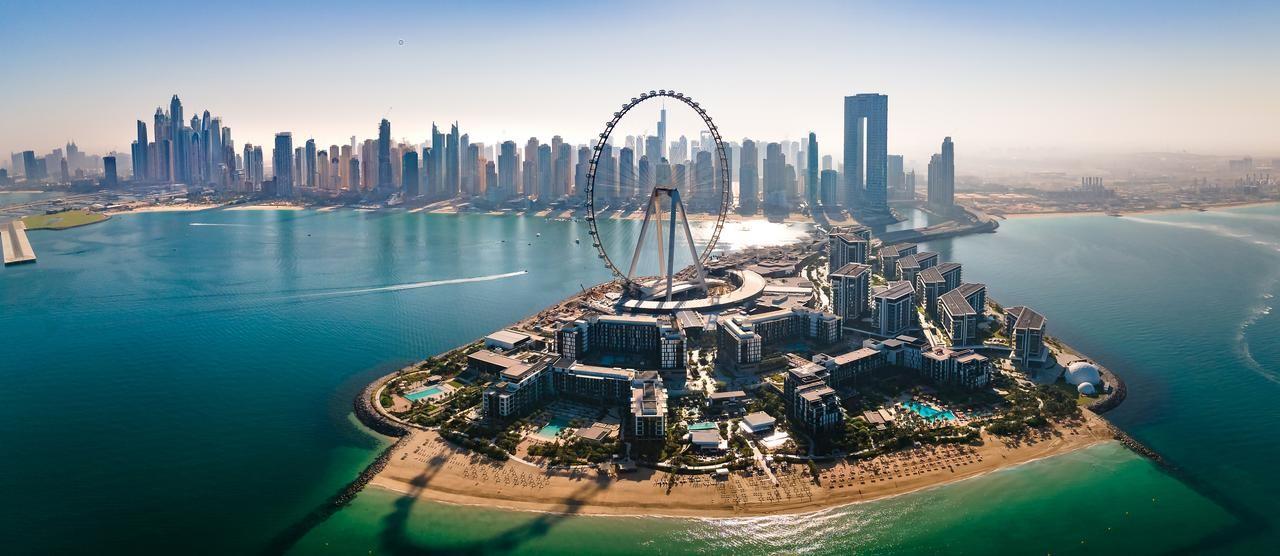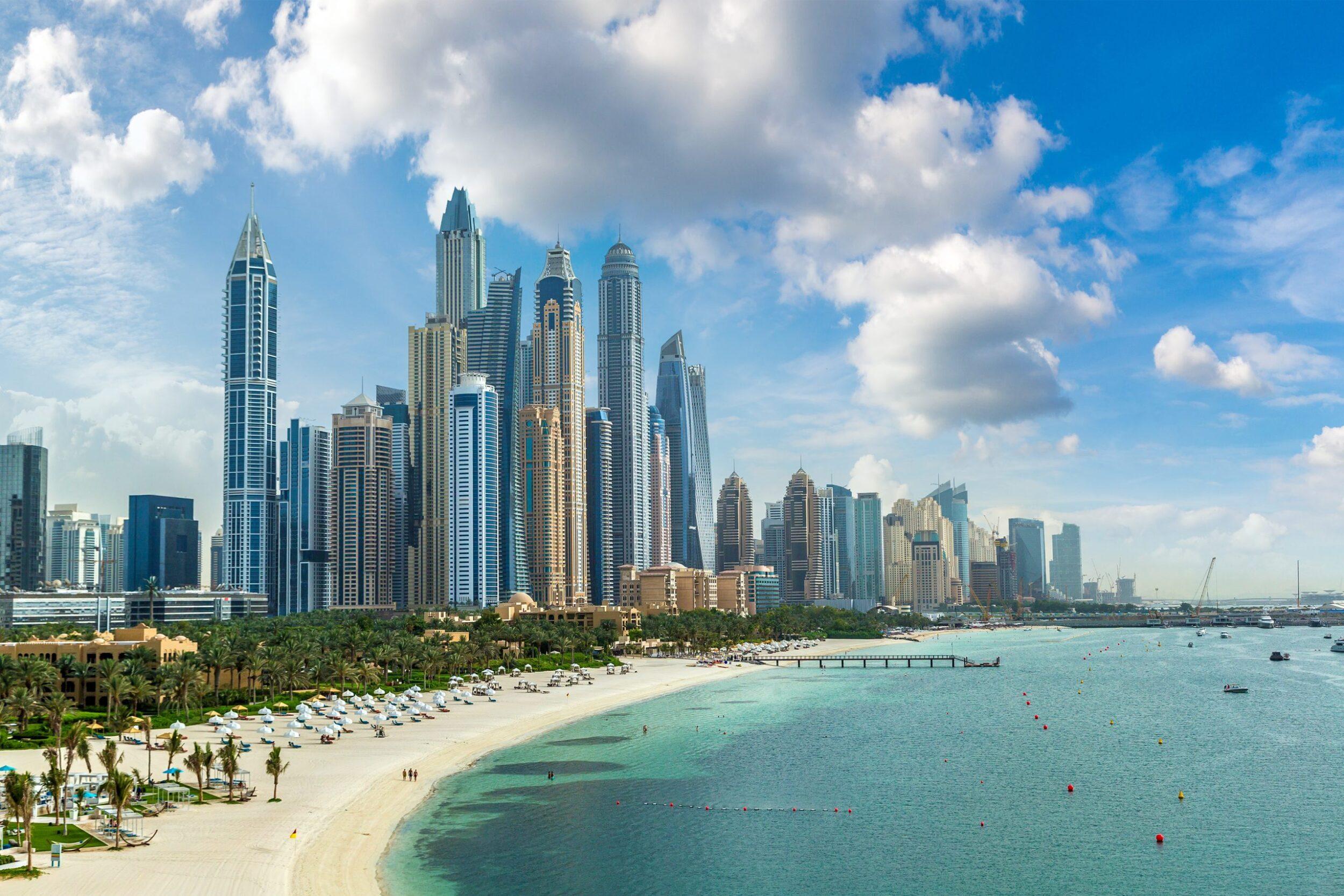
Are you enthralled with the magic of Dubai, one of the most vibrant and exotic cities in the Middle East? So were the 17.15 million visitors who travelled there in 2023.
If you own a property in Dubai and are considering seasonal rentals the potential to earn income is vast.
With its luxury lifestyle, miles of sandy beaches and incredible skyline, Dubai is a popular tourist destination. It also offers many business opportunities and has become an attractive location for remote workers.
This article explains the legalities of how to rent out your property in Dubai to ensure you stay within the law.
The seasonal rental process in Dubai
Rental permit
To rent out your property in Dubai you first need to obtain a rental permit from the Real Estate Regulatory Agency (RERA). This government body works in tandem with the Department of Tourism and Commerce Marketing (DTCM) to promote the city and the benefits of living there.
It is important to distinguish between short and long-term rentals when applying for a rental permit, as the procedures are different. Seasonal rentals are classed as short-term rentals and are referred to as Holiday Homes on the government websites.
A seasonal rental is classed as a let of less than 90 days of furnished accommodation. This must include the whole property i.e. not just a room in a house.
To apply for the holiday home permit on the government website you must:
- Visit the above link and register
- Provide the property information e.g. size and number of rooms
- Supply the required documentation
- Your identification, such as a passport or your Emirates ID
- The property deeds
- Confirmation of who will manage the property
- A Dubai electricity and water bill
- A copy of the contract
The fee is AED 300 per bedroom + AED 50 per Holiday Home (issuing a Holiday Home classification certificate) + AED 10 knowledge fee + AED 10 innovation fee.
Total for a 1-bedroom property: AED 370 (approximately £80)
This is renewable annually and is usually issued within 24 hours of application.
Dubai is becoming an increasingly popular destination for tourists, with annual growth of 3.75% predicted between 2024 and 2029. This is a bonus if you intend to use your Dubai property as a seasonal rental.

Operating a holiday home in Dubai
Once you have received your permit, you are free to advertise the property for seasonal rentals.
It is important to remember that Dubai is strict regarding the requirements for a holiday home.
- Guest registration
As the property owner, it is your responsibility to check the guests in and out on the government website. This is to ensure visitors to Dubai are registered for data collection purposes.
- Tourist tax – Tourism Dirham
This should be included in the property rental fee and then paid by the owner to the Department of Tourism and Commerce Marketing each month. The fee is currently AED 10 per night for a standard holiday home.
- Property standards
As with any holiday home, the property should be fully furnished and the essentials such as kitchen equipment must be provided. Additional facilities such as a swimming pool, garden or parking will depend on the property.
- Pricing
The seasonal rental market in Dubai can be competitive, so it is important to research competitors and set a realistic price. In the second quarter of 2024, the average rental yield for property in Dubai was 5.27%.
- Marketing
The most popular places to advertise seasonal rentals in Dubai are travel platforms such as Booking.com, Airbnb and Vrbo.Another marketing opportunity is to let to short-stay travellers. Dubai Airport is a major destination for connecting flights between Europe and the rest of the world. Many travellers decide to spend a couple of days in the city before continuing their journey, making short-term seasonal rentals a potential source of income.
A report by financial services provider Remotly stated Dubai is the number one city in the world to relocate to.
The popularity of remote working in Dubai means seasonal rentals are no longer just for tourists, offering property owners an additional marketing opportunity.

Seasonal rentals to remote workers
Dubai has experienced an influx of digital nomads thanks to the introduction of the Virtual Working Programme and the popularity of remote working since the pandemic. However, digital nomads are often on a limited budget and don´t want to pay the high prices commanded by hotels.
This means seasonal rentals to remote workers offer short-term rental income for property owners in Dubai.
Dubai was voted the second-best city in the world for remote working out of 75 global cities.
Tax-free seasonal rentals in Dubai
The good news for property owners is that there is no tax on income from seasonal rentals. This makes investing in property in Dubai an attractive option if you want to earn rental income. This tax-free benefit applies to both residents and non-residents, so if you live in the UK but own property in Dubai you will not be taxed on any seasonal rentals.
How iad Overseas property consultants can help you with your Dubai investment
Seasonal rentals in Dubai offer a vast income opportunity for property owners. If you follow the regulations and abide by the rules, property investment in Dubai for seasonal rentals could be a lucrative financial opportunity.
Are you thinking of buying an investment property for seasonal rentals in Dubai?
Our iad Overseas property consultants have access to a vast selection of properties in Dubai. Contact us with any questions you have about buying property in Dubai.

- https://www.dubaidet.gov.ae/en/our-services/for-consumers-and-students/issue-a-new-holiday-homes-permit
- https://www.statista.com/outlook/mmo/travel-tourism/vacation-rentals/united-arab-emirates#revenue
- https://www.globalpropertyguide.com/middle-east/united-arab-emirates/rental-yields
- https://www.nestpick.com/work-from-anywhere-index/
- https://www.dubaidet.gov.ae/en/legislative-news/dtcm-tourism-dirham-administrative-resolution-no-2-of-2020





